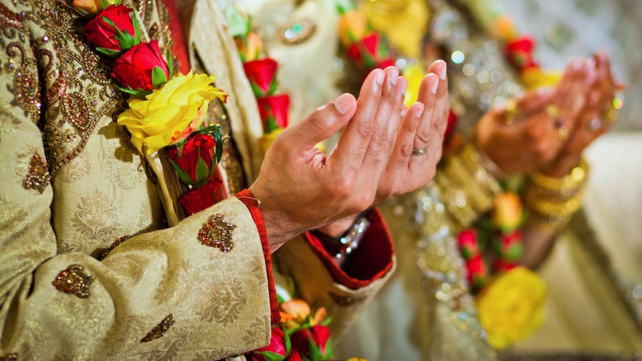“If you separate yourself from your wives, send them away with generosity: it is not permitted to you to appropriate the goods you have once given to them”.
Prophet Muhammad
Thus the custom originated in ancient times with the payment which husbands often made to their wives as means of support in their old age or when turned out by them.
Table of Contents
Origin Of Mahr
In old Pre-islamic Arabia, when the institution of marriage as we know it today was not developed, many forms of sex relationships between man and woman were in vogue. Some were temporary and hardly better than prostitution. Men, after despoiling their wives, often turned them out, absolutely helpless and without any means.
A device was in vogue under the name of SHIGHAR Marriage in which a man would give his daughter or sister in marriage to another in consideration of the latter giving his daughter or sister in marriage to the former. Thus neither of the wives could get a dower. False accusations of unchastity were frequently used to deprive the wife of her dower.
In the so called Beena marriage, where the husband visited the wife but did not bring her home, the wife was called Sadiqa or female friend, and a gift given to the wife on marriage was called, Sadaq, In Islam Sadaq simply means a dowry and is synonymous with Mahr (sale price). But originally the two words (Sadaq and Mahr) were quite distinct.
Sadaq was a gift to the wife in the Beena form of marriage and Mahr was a gift or compensation to the parents of the wife in the Baal form of marriage. Mahr belongs to the marriage of dominion, which is known as the baal marriage, where the wife’s parents (guardian) part with her and have to be compensated.
Mahr in the baal form of marriage was also recognised by the prophet to ameliorate the position of wife in Islam, and it was combined with Sadaq, so that it became a settlement or a provision for the wife. In Islamic law Mahr belongs absolutely to the wife, although historically speaking it is more akin to bride’s price than gift or anything else.
Definition Of Mahr
According to Tyabji– Mahr or dower is a sum that becomes payable by the husband to the wife on marriage, either by agreement between the parties or by operation of law. It may either be prompt (Mu’ ajjal), or deferred (Mu’ wajjal).
According to Ameer Ali, “Dower” is a consideration which belongs absolutely to the wife. According to Mulla, “Dower” is a sum of money or other property which the wife is entitled to receive from the husband in consideration of the marriage.
The word ‘consideration’ is not used in the sense in which the word is used in the Indian Contract Act. It is an obligation imposed upon the husband as a mark of respect to the wife.
Hon’ble Justice Mahmood has said in Abdul Kadir v. Salima held, that Dower under the Muslim law is a sum of money or other property promised by the husband to be paid or delivered to the wife in consideration of marriage, and even where no dower is expressly fixed or mentioned at the marriage ceremony, the law confers the right of dower upon the wife’.
Subject Matter of Dower
According to tradition Amir bin-Rabia said that ” A woman of the tribe of Bani Fazarah married on a settlement of a pair of shoes”. And the prophet said to her” are you pleased to give yourself and your property for these two shoes?” She said, “yes, then the Prophet approved of the marriage”
Thus, Subject matter of dower is not only confined to a sum of money or property, it includes personal services and other things. The following were recognized as the subject matter of dower:
- A handful of dates (Abu Daud).
- A pair of shoes (Tirmizi).
- If the husband is a slave, his services to his wife (Mohit Sarkhree).
- The services of the husband’s slaves to the wife (Fatawa-i-Alamgiri).
- Husband’s services rendered to the guardian of a minor wife (Durrul Muktar)
- Teaching the Quran to the wife (Tradition).
The main contention of the Muslim jurists is that anything which comes within the
Definition of maal can be the subject matter of dower. Thus apart from the personal services of the husband. “Any profit arising from land or business, debts due to the husband, insurance policies, choses-in-action, the sale proceeds of something, may constitute valid dower.”
If the subject matter of the dower is an “animal” or “cloth”, then the wife is entitled to mahr-ul-misl, proper dower because such dower is invalid for uncertainty.
Similarly, a “house or the land” without specifying the exact location and description are not fit subjects of dower and the court will have to fix proper dower in those cases.
Object & Importance Of Dower
The object of Dower are:
- to enforce an obligation on husband as a mark of respect towards his wife,
- to place a check on the misuse of power to give divorce by the husband,
- to provide for her livelihood on the dissolution of her marriage, so that she can lead a dignified life after the death of her husband or divorce.
According to Fatwa-i-Quazi Khan: “Mahr is so necessary to marriage that if it were not mentioned at the time of the marriage, or in the contract, the law will presume it by virtue of the contract itself.”
Dower is so essential under the Muslim Law of marriage that even if there is an agreement made by the wife before marriage that she will revoke her right of dower and will not claim for dower in future or she agrees to marry without any dower, that agreement will be invalid according to law.
This is done to protect the wife from the power of husband to give divorce and to prevent its misuse. Under Muslim Law, husband can give divorce to his wife as his will so the object of dower is to prevent the misuse of such power and also to prevent polygamy.
Increase Or Decrease Of Dower
Husband can increase the amount of dower at any time and also the wife can remit the dower wholly or partially but it should be done by her free consent. A Muslim girl who has attained puberty can relinquish her dower, it is not mandatory that she has attained majority (which is 18 years according to Indian Majority Act) or not. The remission of Mahr by wife is called “Hibe-e-Mahr”.
However, In any case after the death of the husband, the wife suffers mental distress, then remission of dower at that condition will be considered against her free consent and will not be binding on her.
In Shah Bano vs Iftekar Mohammad, it was held that “in certain circumstances remission of dower will not be binding on her, for instance husband shows indifference towards his wife and he makes it obvious that the only way to resolve those indifference is when she remit the dower, and makes a document for the same, then it will be against her free consent and also against justice and equity“.
Dower & Consideration Differentiated
The concept of Mahr was introduced by the Prophet Mohammad and he made it obligatory for husbands to pay Dower to his wife in every marriage. Dower is similar to the Donatio Propter Nuptias in Roman Law. But in Roman Law it was voluntary and in Muslim Law it is obligatory in nature.
The nature of dower can be defined as follows:
- Contract of dower and contract of sales is frequently compared and wife is considered as property and mahr as her price.
In the case Abdul Kadir v. Salima, Justice Mahmood compared marriage with contract for sales and dower as the consideration for such contract and said, Dower may be regarded as consideration for connubial intercourse by way of analogy to the contract for sale. The right to resist her husband so long as the Dower remains unpaid is analogous to the lien of a vendor upon the sold goods while they remain in his possession and so long as the price or any part of it is unpaid and her surrender to husband resembles the delivery of the goods to the vendee.
- According to some well-known authorities Dower is regarded as a consideration for conjugal intercourse. In the case of Smt. Nasra Begum v. Rizwan Ali, Allahabad High Court held that right to claim prompt dower proceeds cohabitation.
- Dower is an essential incident and fundamental feature of marriage and even though payment of dower is not fixed during or before marriage, the wife is still entitled to some dower from her husband.
In the case Hamira Bibi v. Zubaida Bibi, Judicial Committee held that, Dower is an essential incident under the Muslim Law the status of marriage, to such an extent this is so that when it is unspecified at the time the marriage is contracted, the law declares that it must be adjudged on definite principles.
As Dower is regarded as consideration for marriage, therefore in theory it becomes payable before the consummation of marriage but the law divides it into two parts:
- Prompt dower, which becomes payable before the wife starts living in her matrimonial house.
- Deferred dower, which becomes payable when demanded by the wife dissolution of marriage either by death of any of the parties or on divorce. But after the death of the husband dower is considered as a debt and the widow is entitled for that debt along with other creditors of her deceased husband, which is to be satisfied on his death from his estate.
If the property of the deceased husband is under the possession of the widow, she is entitled to retain the possession until the amount of dower is satisfied from that property and heirs can recover the property after the amount of dower is satisfied by the widow.
Difference Between Dower & Dowry
The main difference between Dower and Dowry are as follows:
- Dower is existed in the Muslim community since the Pre-Islamic period, it is an old custom and is given as an honour to wife. However, Dowry is an evil practice and a new practice crept in India, especially in Hindu community.
- Dower is paid by the husband to wife in a marriage. It is the consideration of marriage. While Dowry is demanded from the side of the bridegroom and his parents.
- Dower is for the welfare of the Muslim wife. However, Dowry is grabbed from the bride’s parents by the husband and his parents/relatives.
- Dower prevents the Muslim husbands to give diivorce to his wife because after giving divorce the husband need to pay the entire dower as per the agreement. Dowry however, creates more greediness to the mind of the bridegroom and his parents, thus they kill the wife to get another marriage.
- Dower is only seen in the Muslim community but the evil practice of Dowry has crept into almost all communities.
- Dower has been praised by various social reformers. While the practice of Dowry is criticized by almost all social reformers.
- Dower is a mark of respect for the wife but Dowry is burdensome on the parent of the bride.
- Dower is not punishable but giving or taking Dowry is punishable under Section 3 of the Dowry Prohibition Act, 1961.
- Dower is an unsecured debt and the wife or her legal heir can recover the debt from the husband through civil procedure treating it as a debt. On the other hand Dowry is not any debt it is an evil habit and evil practice.
Conclusion
The concept of mahr in Islamic law is beneficial for the woman. It ensures financial security so that she is not left helpless after the death of the husband or after the termination of the marriage. It also places a check on the capricious use of divorce by the husband. It is also believed that the mahr is a pivotal custom in the marriages of Muslims.



